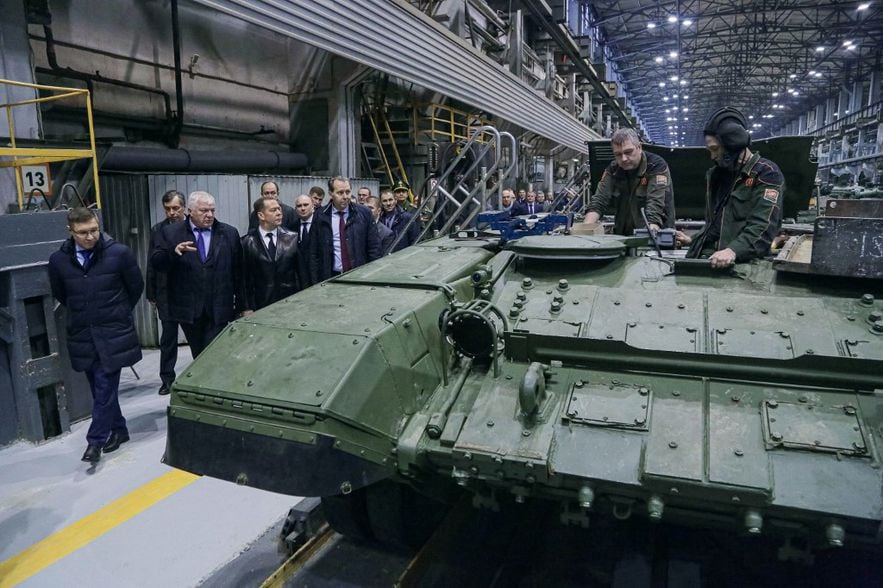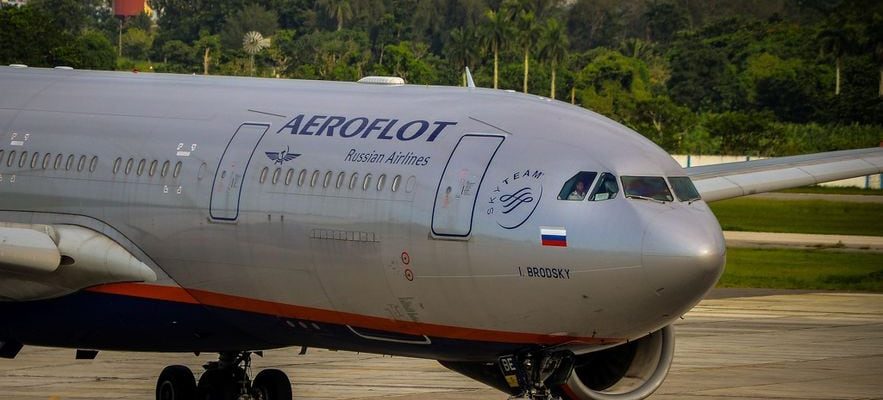Something has changed on the streets of Moscow. This would be obvious to anyone visiting the Russian capital almost two years after the start of the war in Ukraine… and the implementation of Western sanctions against Russia. This is, in any case, the observation of economics professor Vladislav Inozemtsev, met in Abu Dhabi, on the sidelines of the World Policy Conference, organized by the French Institute of International Relations (Ifri): “Before the conflict, the The majority of vehicles were Western cars, new or well-maintained, often in better condition than those you see on the streets of Berlin, he explains. But today the appearance of the city is different. A third of vehicles are Chinese brands. The same phenomenon is observed in electronics and smartphones, but on a larger scale: 90% of products are Chinese.”
Other changes are visible in the transport sector, continues the founder of the Center for Post-Industrial Studies. At Moscow-Sheremetyevo Airport, only one of the four terminals is open. And Vnukovo, another airport in the capital, is operating at only a third of its capacity. Reading the bulletin boards gives an idea of the narrowing of the Russians’ mental horizon: no connection with the West; only departures and arrivals to and from Istanbul, Dubai, Georgia or Azerbaijan.
The offer in supermarkets, cafes and restaurants, however, remains rather stable: as food products are not subject to sanctions, there are, as always, American wines and Italian Ferrero chocolates.
“More and more entrepreneurs under 35”
For Russians, the main question remains that of purchasing power, which, against all expectations, has returned to a level comparable to that at the start of the conflict in Ukraine. “After the invasion of Ukraine, the ruble lost half its value [passant de 70 à 140 roubles pour 1 dollar], and this was coupled with inflation of 25%, continues Vladislav Inozemtsev. But then, wages began to increase at a rate not seen in nine years until they made up for the loss of purchasing power observed during the first twelve months of conflict. And this in a context where national industries are doing rather well. Because, in the absence of Western products, what is made in Russia has started to sell well.”
Vladislav Inozemtsev adds: “The year 2022 should be marked by a milestone in the registration of new companies and individual businesses, an increase affecting all economic sectors. In the first quarter of 2023, the net increase in the number registered business enterprises has passed the 50,000 mark, with the number of individual entrepreneurs under the age of 35 growing by 40% since the start of 2022.”
Since the invasion of Ukraine, the Russian airline Aeroflot has been banned, particularly in the skies of the European Union.
© / afp.com/ADALBERTO ROQUE
Due to the departure abroad of 1 million workers wishing to escape general mobilization, the labor shortage automatically led to an increase in wages. What is rare is expensive. “Today, if you want to recruit a good manager, you have to offer him double what he earned before the war,” underlines our interlocutor. Finally, large state investments in the military industry support the economy in general while attracting qualified professionals.
Average real income on the rise
“In the defense sector, spending in 2024 will be 3 times higher than in 2021. The giant company Uralvagonzavod produces 5 times more tanks than before the war, and Russia has increased its production 2.5 times shells and small arms. As a result, wages have increased by 57% on average this year.”

Dmitry Medvedev (in leather jacket), Deputy Chairman of Russia’s Security Council, visits Uralvagonzavod, the country’s main tank factory, in Nizhny Tagil, October 24, 2022.
© / AFP
Russians, who had not observed any improvement in their well-being since 2014, have noticed a recent inflection. “The war economy and increased public spending have generated a significant increase in disposable income: average real wages increased by 13.3% in May 2023 compared to the previous year and increased by more than 10 % for the period from January to July, which does a little better than neutralizing the effects of inflation,” analyzes Vladislav Inozemtsev.
Certainly, Western sanctions have produced negative effects for Russia in air transport (Aeroflot’s planes can no longer count on spare parts and maintenance provided by Boeing or Airbus) and rail (Alstom, Siemens or General Electric have cut ties with Russia). But, in general, no one in Russia today complains about a deterioration in the economic situation. “At the start of the war it was different. People were wondering about the risk of economic catastrophe. But, since March 2023, these fears have disappeared as wages have started to rise. Fear of collapse of Russia is no longer there, assures the economist. All that the population asks is that things do not deteriorate, that their daily lives are not worse tomorrow, that things remain in balance. ” And there is no indication that it will be otherwise.
“The impact of the embargo on hydrocarbons? Practically insignificant”
Since February 2022, oil and gas revenues have allowed Russia to absorb the shock of the war in Ukraine. “In 2022, Western countries purchased record quantities of Russian hydrocarbons at extremely high prices, offering Moscow nearly $115 billion in unanticipated export revenues, recalls Vladislav Inozemtsev. In 2023, China, “India, Turkey, Singapore, Pakistan and a number of other countries have contributed to the increase in demand, keeping the volume of Russian oil exports virtually unchanged.” In fact, the impact of the oil embargo is practically insignificant, he explains. And the Russian state finds itself in a comfortable financial situation: “It will be able to calmly finance its budget for the next three years without creating knots in its brain. With relatively low inflation, between 5 and 10%, it is manageable. “
“In fact, liquidity is the last thing the country will lack,” concludes the Russian professor. “It could lack support, manpower, minerals, but certainly not money.” And the economist warns: “Do not count on sanctions or any economic asphyxiation to make the Kremlin falter. Ultimately, Western sanctions have very little impact on Russia.”
.
